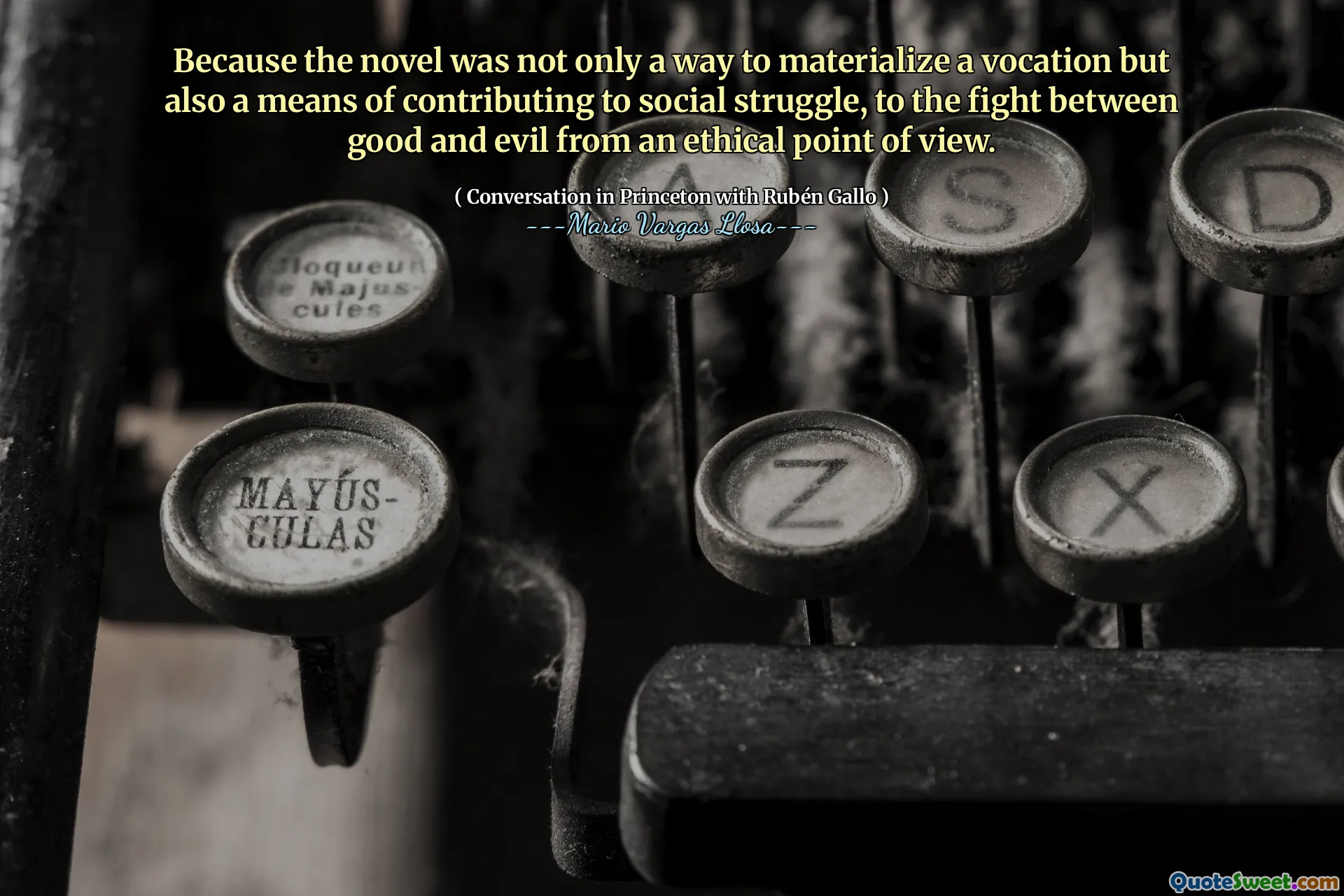
Because the novel was not only a way to materialize a vocation but also a means of contributing to social struggle, to the fight between good and evil from an ethical point of view.
This quote highlights the profound role that the novel and literature, in general, can play beyond mere entertainment. It suggests that storytelling serves as a vehicle for expressing one's passions and vocations while simultaneously acting as a catalyst for social change. The idea that a novel can be a form of ethical engagement resonates deeply, as literature often illuminates diverse human experiences, challenges societal norms, and underscores moral dilemmas. The novel, in Vargas Llosa's context, becomes an instrument for moral reflection and advocacy, encouraging readers to consider issues of justice, morality, and societal betterment. Historically, many authors have used their narratives to criticize injustices, highlight marginalized voices, and inspire collective action. This dual purpose—personal fulfillment and social impact—elevates the novel from mere storytelling to a moral act. By embedding social critique within literary art, writers can influence public consciousness and contribute to the ongoing struggle for a more just and humane society. The ethical dimension emphasized here underscores the belief that art is inherently political and that writers bear a responsibility to give voice to societal issues. Overall, this perspective affirms that literature is a powerful tool for both personal expression and social transformation, embodying the idea that art and morality are intertwined in the pursuit of a better world.






